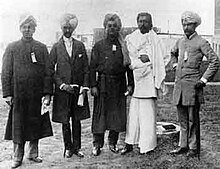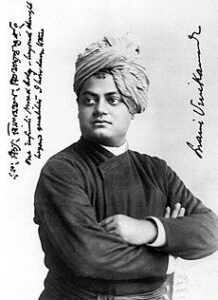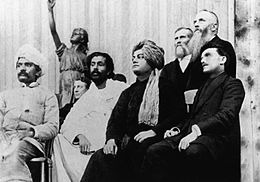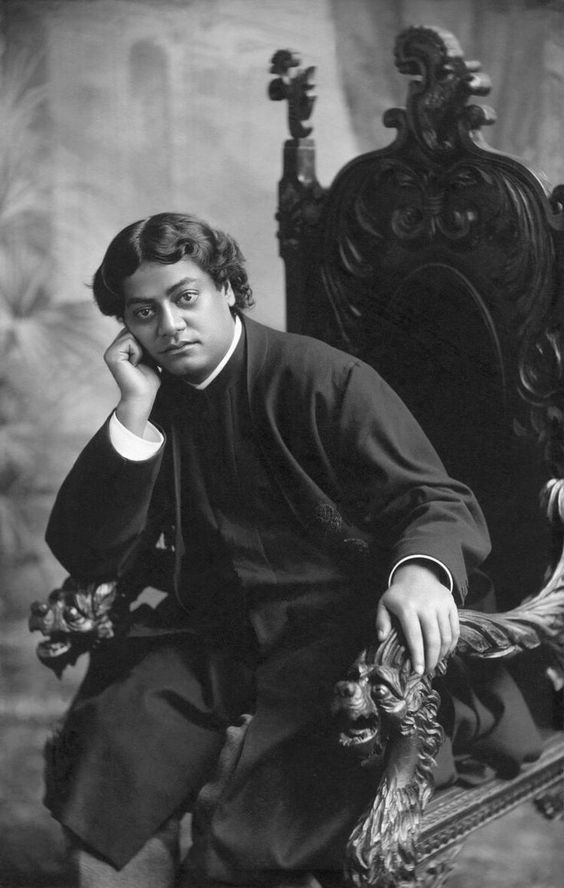–An Article By Poojan Patel
“Vivekananda’s Vision: Exploring the Relevance of His Parliament of Religions Speeches in Today’s Global Landscape”
 Swami Vivekananda’s participation in the Parliament of the World’s Religions in 1893 marked a significant event in the history of interfaith dialogue and the introduction of Hinduism to the Western world. He began his journey to the United States in May 1893, traveling through China, Japan, and Canada before arriving in Chicago for the Parliament, which took place from September 11 to 27, 1893. Vivekananda’s speeches at the Parliament covered a range of topics, including the reasons for religious disagreements, an introduction to Hinduism, the role of religion in India, and the relationship between Hinduism and Buddhism.
Swami Vivekananda’s participation in the Parliament of the World’s Religions in 1893 marked a significant event in the history of interfaith dialogue and the introduction of Hinduism to the Western world. He began his journey to the United States in May 1893, traveling through China, Japan, and Canada before arriving in Chicago for the Parliament, which took place from September 11 to 27, 1893. Vivekananda’s speeches at the Parliament covered a range of topics, including the reasons for religious disagreements, an introduction to Hinduism, the role of religion in India, and the relationship between Hinduism and Buddhism.
Interfaith Dialogue and Tolerance: Vivekananda’s speeches emphasized the importance of understanding and respecting different religious perspectives. His story about the frog in the well illustrated the narrow-mindedness that can arise when individuals are isolated within their own belief systems. This message of tolerance and the need to break down religious barriers is still relevant today, especially in a world where religious conflicts persist.
 Hinduism’s Philosophy and Universality: Vivekananda’s speeches introduced the world to the philosophical underpinnings of Hinduism, including the concepts of God, the soul, and the body. His assertion that Hinduism, Buddhism, and other religions share common principles highlights the universality of spiritual values. This emphasis on shared values and the interconnectedness of religions remains relevant in the modern world as people seek common ground for dialogue and cooperation.
Hinduism’s Philosophy and Universality: Vivekananda’s speeches introduced the world to the philosophical underpinnings of Hinduism, including the concepts of God, the soul, and the body. His assertion that Hinduism, Buddhism, and other religions share common principles highlights the universality of spiritual values. This emphasis on shared values and the interconnectedness of religions remains relevant in the modern world as people seek common ground for dialogue and cooperation.
Social Issues vs. Religion: In his speech, “Religion not the Crying Need of India,” Vivekananda highlighted the pressing issue of poverty and the need to address socio-economic challenges. This perspective still resonates in today’s context, as India grapples with a variety of social and economic issues. The idea that addressing poverty and inequality is a more immediate concern than religious conversions reflects a broader conversation about prioritizing social development.
Global Harmony and Peace: Vivekananda’s vision of “Help and not Fight,” “Assimilation and not Destruction,” and “Harmony and Peace and not Dissension” continues to hold relevance in today’s world, particularly in discussions on global diplomacy and cooperation. These principles can be applied to contemporary international relations, including initiatives like the G20 Summit, where countries come together to address shared challenges.
 Relevance in Today’s Scenario (G20 Summit and India’s Global Emergence):
Relevance in Today’s Scenario (G20 Summit and India’s Global Emergence):
Swami Vivekananda’s principles of harmony, cooperation, and tolerance are highly relevant in today’s global scenario, particularly concerning India’s emergence on the global stage, as seen in events like the G20 Summit.
Diplomacy and Cooperation: Vivekananda’s emphasis on “Assimilation and not Destruction” aligns with the spirit of international diplomacy. India, as a G20 member, can draw on his message to foster cooperation and mutual understanding among diverse nations.
Promoting Peace and Harmony: In an era marked by geopolitical tensions, Vivekananda’s call for “Harmony and Peace” serves as a guiding principle for India’s foreign policy. It can inspire India to play a constructive role in resolving global conflicts and promoting peaceful coexistence.
Global Interconnectedness: Vivekananda’s idea that religions are interconnected can be extended to the concept of nations being interconnected in the global economy and security landscape. India’s engagement in international forums like the G20 acknowledges this interconnectedness.
 Addressing Global Challenges: Vivekananda’s concern for the poor and marginalized can inform India’s approach to addressing global challenges, such as climate change, poverty alleviation, and public health crises, in collaboration with other G20 members.
Addressing Global Challenges: Vivekananda’s concern for the poor and marginalized can inform India’s approach to addressing global challenges, such as climate change, poverty alleviation, and public health crises, in collaboration with other G20 members.
In conclusion, Swami Vivekananda’s teachings and principles, as expressed in his speeches at the Parliament of the World’s Religions, continue to hold relevance in today’s world, especially in the context of India’s growing global prominence and its participation in international forums like the G20 Summit. His emphasis on tolerance, cooperation, and addressing pressing social issues provides valuable insights for shaping India’s role on the global stage.





